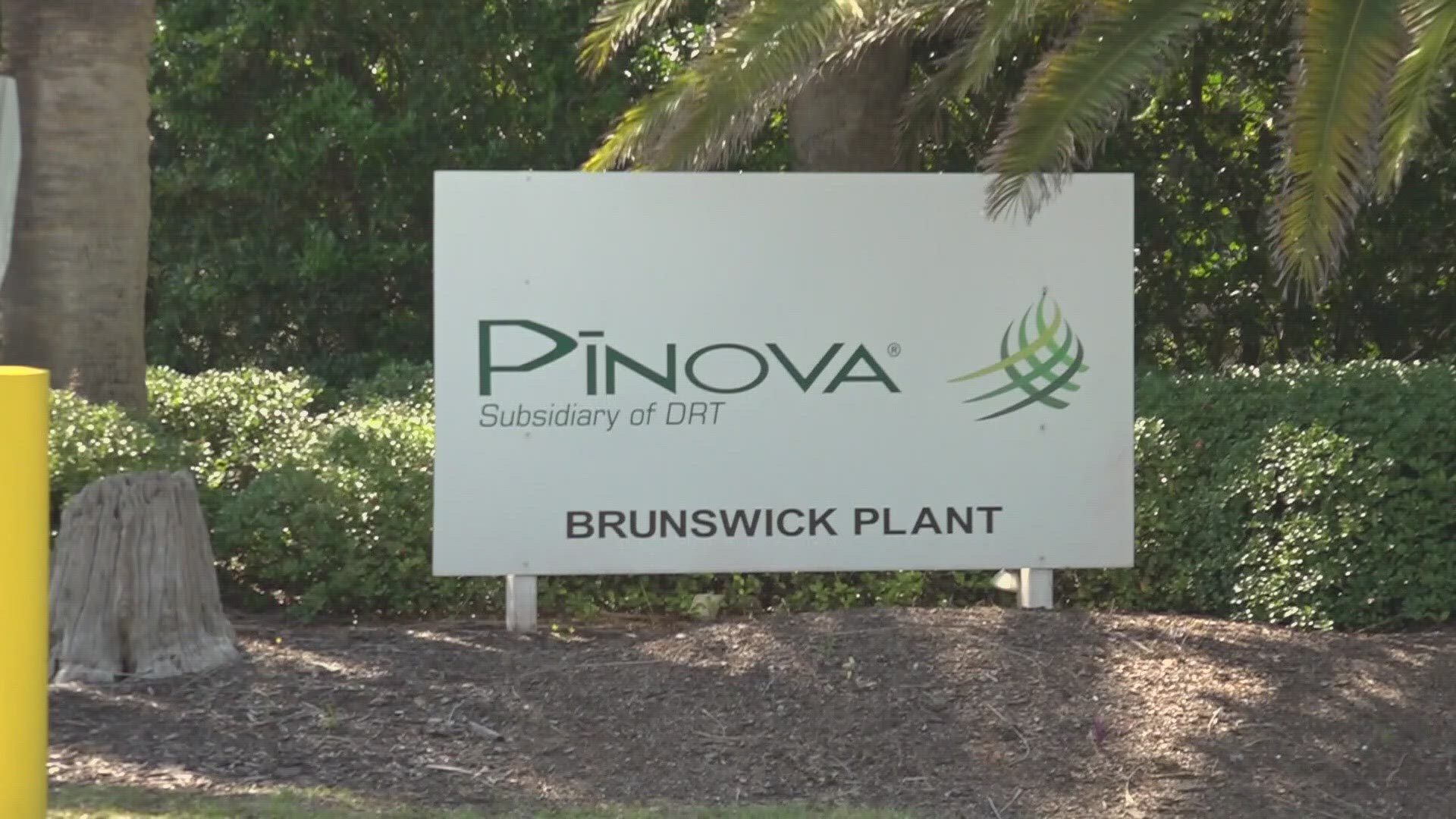BRUNSWICK, Ga. — The Pinova manufacturing plant, beset by a massive fire in April that led to evacuations, could be fully decommissioned by December 2024.
The Brunswick manufacturing plant is set to shut down permanently, Pinova Inc. announced in June. After a review, Pinova due to it requiring substantial demolition, reconstruction, costs and time.
At a special called meeting Tuesday, attorney Mark Johnson, of the Gilbert Harrell Law Firm, said the focus was now on clean-out, dismantling the equipment, ultimately decommissioning the plant. Decommissioning calls for making sure pipes are empty and removing chemicals from tanks.
Pinova Senior Director of Operations Ron Kurtz say 99% of the site is chemical free, and that over half of the buildings, including the one where the fire broke out, have been demolished.
“What we're doing right now is removing the last of residuals in equipment and in pipelines. And that will be done pretty much by the middle of January;” Kurz said.
Kurtz expects all buildings removed by August. As far as Pinova employees, he says the plant currently has 18 employees on site, declining from 213 employees at the time of the fire. The company has held four job fairs to place employees, and that over 100 have been moved into new jobs.
"We had four job fairs over 100 companies participated in the job fairs…Everyone jumped in. And we all worked together to find these talented employees at Pinova jobs,” Kurz said.
Between employees and contractors Kurz gave an estimate of the plant's yearly value to the county at $60 million.
The roughly 300 acres marks on of the largest conveyances of land Brunswick has seen in hundreds of years, he said. Johnson said a goal next year is talking to residents about the future of the site.
"We think it can accommodate numerous potential projects," Johnson said.
The Pinova plant, which makes wood resin, has operated about a mile and a half from downtown Brunswick for more than 100 years, formerly under the company, Hercules. Hercules produced the pesticide toxaphene until 1980, according to the company’s website. Toxaphene is now classified by the Environmental Protection Agency as a "probable human carcinogen."

